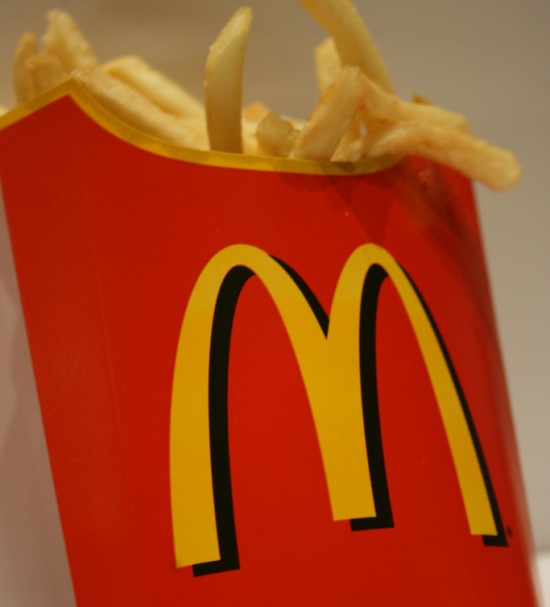McDonald’s, as official sponsors of the London 2012 Olympic Games have exclusive brand rights to much of the food and drink produce sold in participating Olympic commercial properties. This means that, while the McDonald’s logo can be displayed throughout venues, brands which are not sponsors will not be able to sell franchised food products that would directly compete with the commercial property restaurant chain.

However, it appears that not even this has been enough for the McDonald’s board of directors, who have forced Olympic bosses to ban the sale of chips which do not come from one of their commercial property restaurants from all Olympic venues. The only exception to this rule is if the chips are accompanied by a piece of fish, making up an iconic British meal.
The new legislation will affect 800 food retailers across the 40 commercial property Olympic venues across the United Kingdom. They gave the reason of “sponsorship obligations” when informing the commercial property snack retailers the news that chips must be removed from their menus, which will undoubtedly cause loss of earnings to many small British companies.
It appears that the Olympics committee predicted the outrage from small commercial property retailers that followed the announcement, as a memo was circulated to staff around the country. In it, they were keen to highlight that the decision to not include chips on the menu was in no way the decision of the food retailers up and down Britain who will have to face the consumers over the course of the summer.
The memo read; “Due to sponsorship obligations with McDonald’s, Locog have instructed the catering team they are no longer allowed to serve chips on their own anywhere within the Olympic park.
“The only loophole to this is if it is served with fish.
“Please understand this is not the decision of the staff serving up your meals, who given the choice would gladly give it you however they are not allowed to.”
This is a far cry from the message Locog were giving out several months ago, with the “Best of British” being championed and the emphasis on how small commercial property businesses would benefit being proclaimed loudly on a virtually daily basis.
However, it appears that, instead, Olympics bosses have taken the side of large corporate sponsors over the small British companies they claimed the Olympic Games would benefit. With leisure and food retail companies being forced to liquidate assets and sell their commercial property headquarters on a virtually daily basis in the country, the Olympics did appear to be a sign of hope for those living close to the water line.
This is not the only controversial hostile takeover of the consumer base exhibited in the London Olympics, however, as Movehut revealed in a previous blog. Visa also played the “sponsorship obligations” card when demanding that Locog banned the use of rival cards being used in any Olympics commercial properties, making it extremely difficult for anyone without one of their cards to make purchases inside any Olympics venues.
Consumer Action Group spokesman Marc Gander, regarding the Visa monopolisation, said; “This is shocking. It is a privilege to be a sponsor of the Olympics and they are abusing that privilege by exploiting consumers.”
So with big businesses effectively hijacking an event which was purported to be the saviour of small British commercial property businesses this summer, the real question is whether the Olympics will be worth it in the end. Instead of bringing much needed revenue into Britain, funds are being channelled to McDonald’s and Coca-Cola, American corporations who already make billions of pounds in profit annually. And with the Games already 100 per cent over budget, it could be that instead of saving the country’s economy, it plunges the average British person even further into the depths of double dip recession.
Do you think large commercial property chains should be given so much power over an international sporting event? Or do you believe that Locog should have stuck to their promises and championed the small British retailers they claimed the Games would help?
Previous Post
Supply of Grade A Office Space in Edinburgh Running Out